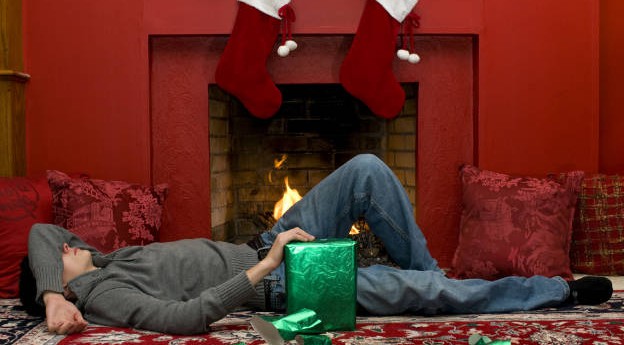
Does your holiday wish list include getting more sleep? With a rush of parties and get-togethers, increased food and alcohol consumption, and a general disruption of normal routines, the month of December can be exhausting.
Shalini Paruthi, M.D., an assistant professor of pediatrics and internal medicine at Saint Louis University and a physician at SSM Cardinal Glennon Children’s Hospital, says almost all adults operate with some sleep deprivation from time to time. Paruthi deals with sleep disorders in both children and adults. She has three top tips, based on recommendations from the American Academy of Sleep Medicine, for trying to make it through the holidays:
1. Maintain a regular sleep schedule
Paruthi recommends adults try to go to bed and wake up at roughly the same time each day. Trying to ‘catch up’ on sleep on the weekends may not be productive. “People who sleep in on a Sunday morning may not be sleepy by their usual bedtime on Sunday evening, which can make waking up on Monday difficult. This can throw off the week’s schedule,” she explains. “When possible, it is best to try to get to bed and get up at same time (at least within an hour) seven days a week.”
2. Set a bedtime routine
“Even a 10-minute routine where you do the same things each night to prepare yourself for going to bed is a good idea,” says Paruthi. Our brains need a wind-down period to go from ‘on’ to ‘sleep time.’
3. Prioritize sleep
Adults need seven to nine hours of sleep a night. Paruthi recommends thinking about your schedule and making time for sleep. “If you know you have to get up at 6 a.m. the next day, set your alarm clock in the evening for 9:30 p.m.,” she suggests. “That alerts you that you have a half hour before you need to go to bed and you can begin to wind down.”
Bonus tip: Set the mood
Paruthi also recommends turning off the television and keeping electronic devices away from the bedroom. “We are so ‘go, go, go’ that people are on all the time now,” she says. “There have been studies showing that the light emitted from electronic devices decreases the release of melatonin, a hormone that helps us feel sleepy.” There are also devices such as blue light screen filters and blue light blocking goggles to decrease this effect.
Drowsy driving dangers
Drowsy driving can be just as dangerous as driving while drunk. Paruthi cites a study by the AAA Foundation for Traffic Safety in which a sampling of crashes occurring in 2009-2013 revealed 21 percent of deadly crashes were due to drowsy driving.
“Tests have shown reaction times of sleep deprived drivers slow to times similar to those of people who have a Blood Alcohol Content (BAC) of 0.08, the level when they are considered legally drunk,” Paruthi adds.
Our bodies try to alert us when we are overly tired, Paruthi noted. “If you are start to feel too tired to drive, then you are,” she warns. “Drivers need to recognize what their body is telling them.” Signs to look for include droopy eyelids, yawning, missing your exit or turn and feeling sleepy. If you feel any of these coming on, switch drivers (if possible) or find a safe place to pull over and rest for half an hour.
